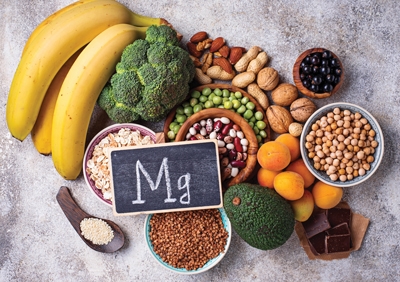
Springtime health MOT
10 tips to boost your wellbeing and vitality this spring. By Lola Biggs
1. The power of adaptogens
Adaptogens help balance hormones. Look for those such as Ashwagandha, Reishi, Rhodiola and Chaga. Adaptogens help regulate the HPA axis (hypothalamus, pituitary, adrenal connection), which is in charge of your stress response and cortisol production. Ashwagandha in particular supports hormone balance, steady moods and reduces anxiety. You can take adaptogens in powder form and add to smoothies, tinctures or try a supplement form.
2. Practice mindful eating
Try not to eat in front of the TV all the time or shovel down your food because you are in a rush. Take the time to taste each mouthful and listen to your body and when its full rather than mindless eating. Slow down and fully appreciate your food – you’ll gain so much more pleasure from it and you’ll also notice how much more improved your digestion becomes by eating slower.
3. Don’t be afraid of eating good fats
Omega 3’s found in nuts and seeds and avocados, play an integral role in hormone regulation and have therapeutic effects on our monthly cycle. Omega 3 also helps reduce inflammation and has been shown to curb the progression of joint diseases such as osteoporosis. Vegetarians and vegans who might not get enough from their diet alone might find a vegan[1]friendly Omega 3 supplement a good idea. As the weather warms up, spring is also the perfect time to get back into those delicious healthy salads, which can provide great sources of good, natural Omega 3.
4. Feel-good vitamin C
A daily dose of feel-good vitamin C is a necessity as it cannot be synthesised or stored in the body, so a supplement can be hugely beneficial. Vitamin C is abundant in fresh fruits and vegetables such as kale, kiwi, oranges, peppers, tomatoes and broccoli. We tend to want to comfort eat during the colder months but as spring approaches, it’s a great time to start your day with an energy-boosting super juice. I like to mix grapefruit, oranges, beetroot, carrot, ginger and celery with 100mg of Coq10, a compound that helps generate good energy in your cells. A vibrant sunny juice like this is so easy to make and is such a brilliant way to start the day.
5. Boost those vitamin D levels
Come spring, most of us are in a vitamin D deficit so it’s crucial to get out in the sun for 10 minutes. Known as the sunshine vitamin, vitamin D can relieve menopausal symptoms, boost mood, energy levels and overall wellbeing. Vitamin D is found in a small number of foods but often ones that may not be suitable for vegans or vegetarians, so topping up levels with a natural supplement might be a good idea.
6. Give your diet a bit of a spring clean
A mass of immune cells and mood influencers reside in the gut. Add fermented foods and drinks like kimchi and kefir slowly and consistently to top up good bacteria colonies and aid a healthy digestion and gut. Rather than reaching for that sugar rush or comforting carbs that just give a quick fix followed by a greater slump, keep a stash of healthy nuts with you instead. Making small shifts to your diet can really make a big difference.
7. Go green!
Spinach, kale, broccoli and asparagus are full of good stuff like vitamins, minerals and antioxidants and can easily be added into everything from salads to smoothies.
I like kale (packed full of vitamins A, C, K, E, B1, B2 and B3 and brilliant for repairing the skin), parsley (rich in vitamins A, C and K), watercress (full of antioxidants, vitamins, calcium, iodine, beta-carotene and more) and spinach (full of vitamin F) which is great for glowing skin.

8. Magical magnesium
Magnesium is a fantastic mineral that helps ease anxiety, restlessness and sleep issues and plays a critical role in brain function. Eat a diet rich in dark leafy greens, fruits, nuts and seeds, especially pumpkin, almonds and cashews as well as avocado. Marine magnesium salts can also be absorbed through the skin as we bathe and can have a positive impact.
9. Eat more herbs and spices
They have been used for hundreds of years to help relieve stress, boost energy and aid digestion. My go-to healing spices include turmeric for its anti-inflammatory, liver-cleansing and antioxidant benefits (try mixing it with a mug of warm almond milk and honey). Cayenne pepper is also brilliant for its endorphin- and metabolism[1]boosting benefits and I always keep cumin and ginger in stock for satisfying the taste buds and calming an anxious tummy. You can also try making your own ginger and lemon tea or adding fresh ginger juice to your morning smoothie.
10. Get into a better sleep cycle
Everything from your mood and skin to your immune system can get thrown off kilter if you aren’t getting enough sleep. Consider your lighting, think about different areas and zones in the home. Bedrooms need to be warm, calming and relaxing. Create a harmonious sanctuary. Switch off all devices a couple of hours before bed, try not to eat heavy meals or drink alcohol after 6pm, take a warm bath, try meditation or mindfulness. I also recommend magnesium (see above). Low magnesium levels are linked to restlessness and frequent waking. Research shows that adding magnesium supplements to your diet can improve your overall sleep quality. Why? Magnesium helps release tension, limits the effects of cortisol, the ‘stress hormone’ and supports the deep restorative phase of sleep by maintaining healthy levels of GABA, a neurotransmitter that promotes peaceful sleep.

Lola Biggs is a dietitian at Together Health which sells natural supplements made with real ingredients (togetherhealth.co.uk)




